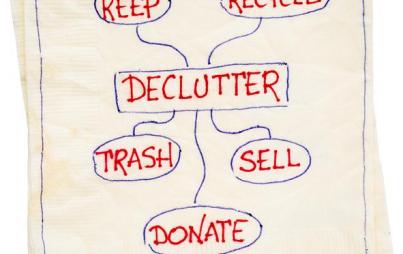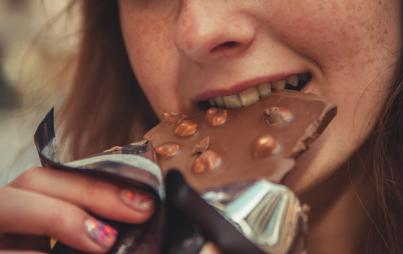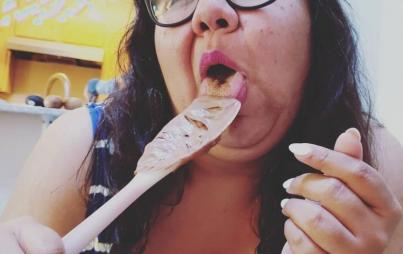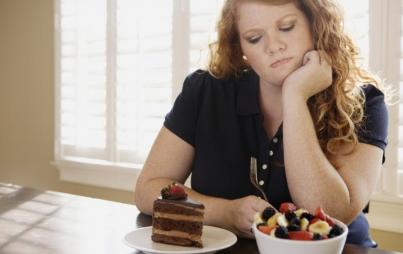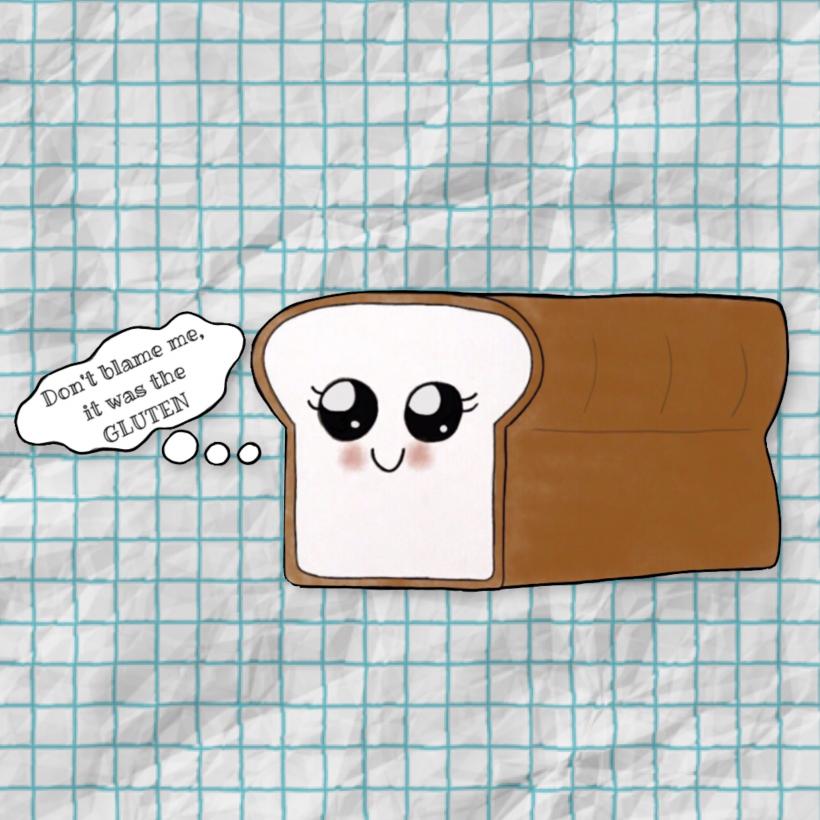
gluten-free? (image credit: Peyton Sheets)
Content Notice: eating disorders
BBA 2.0, Let's Get Woo, takes the last 18 months of life changes/new experiences/self-care and adds a layer of, well, WOO.
A couple of weeks ago, at the end of a typical family dinner, my seven-year-old popped up to ask for dessert (typical). She had been given some kind of treat earlier in the evening. (I can’t remember exactly what, but it was definitely a sugar-type food). She grabbed a box of cookies from the pantry (these, and let me just tell you, there weren’t many left by the time she got to them). She handed the box to my husband and asked if she could have two.
And that’s when things went south.
He flipped the box over to look at the nutrition information (*ahem* calories) and then said, “Yes I guess there aren’t too many calories in there.”
Cue me losing my shit.
My husband doesn’t have an eating disorder. He’s never had an eating disorder. He is a slim athlete whose weight has covered a relatively narrow range (depending on number of burritos). Historically, if he has felt like his pants were getting a little tighter than he likes, he either eats fewer burritos or runs more miles.
I remember a few years ago; he was preparing to compete with a team in a Tough Mudder. He felt it was important that he be able to easily lift himself (over a wall, in the mud —no idea why that sounded like a good idea). So he decided that he’d like to lose some weight.
To lose “some weight,” he quit eating dessert and started taking the inside of his burritos out (leaving the tortilla behind for me to pine over). He lost 30 pounds in two or three months. That’s what it’s like to be my husband.
That is not what it is like to be me. For whatever reason — genetics, the fact that I’m female and a mother of many children, metabolic bullshit, or just because I have so epically confused my body with chronic dieting —I would never lose weight like that. I can lose weight, I’ve done it several times. It’s just miserable.
Back to the cookies. Because my husband’s idea of a weight-loss program is “eat less tortillas,” because he’s never been on Weight Watchers or counted every morsel of food that went into his mouth, because he’s never eaten nothing but cabbage soup for a month, because he’s never exercised so he could eat a pancake, calories are simply information to him. His degree is in math and that is how his brain works, mathematically. This is useful and practical and allows him to make decisions founded on logic and reason, rather than having an existential crisis over whether or not he should go for a run or take a nap.
This is not useful or practical to someone who has, at one or more points in their life, counted calories down to one cherry tomato.
So, when guided by logic and reason, he used the caloric information of the cookie to evaluate whether or not she should have an additional treat, I lost my damn mind.
His actions were in no way malicious. Even after much discussion he still stood by caloric value as useful information (while I wept), but he agreed that what he doesn’t understand he will leave to my discretion. No further mention of calories.
Our daughter is a big kid. Big. She weighed almost 11 pounds at birth. She’s a head taller than her classmates. She’s just a big kid. Last year (in kindergarten) her teacher was doing Weight Watchers and sharing her progress with the class (that’s another article). This year Ella wanted to know how to lose weight.
Cue me diving headfirst into a panic spiral at the thought of my seven-year-old on a diet.
Calories.
I have only in the last couple of years been freed from obsessive calorie counting. It is simultaneously both shocking and devastating to be reduced to the sum of the calories of a cookie, even years after being seemingly freed from the prison of your own mind. Want to be humbled? Congratulate yourself of a year without food as the central and sole focus of your entire life.
You Might Also Like: 9 Disordered Eating Practices You Thought Were Normal
For some of us, perhaps even many of us, there are aspects of the disorders we have fought so hard to overcome that will inevitably show themselves again. Often they show themselves in unexpected moments.
Which is the very long and winding way to bring me to this column and my failed attempt at being gluten-free (and also my previous short-lived keto experiment).
“Diets” — even just “diet” at it pertains to ways/styles of eating i.e. vegetarian, gluten/grain free, vegan — can give rise to a whole new (or renewed) set of emotions. Usually unexpectedly.
Carrie and I had talked at length both about how gluten can cause inflammation and impact overall wellness, and also important it was for me to be able to eat with my family and feel “normal.” But what seems like a reasonably simple request can set into motion a cataclysmic reaction. My Amazon cart filled with books about being gluten-free, bags of pasta made with rice, cookies, snacks, nuts, any food I thought I could use as a substitute for bread.
This ultimately gave way to my renewed obsession with nutrition, and then finally calories. And then finally a much needed return to reality, granted by way of my husband saying something like “what in the hell are you doing.”
I was only able to pull back from it at all because of a husband who is conscious of my disordered behavior (and Zoloft, lots of Zoloft).
My husband didn’t mean to set me up to panic over some cookies. But that’s what happens sometimes. Carrie never intended for me to take something as simple (but also complicated) as eliminating gluten and turn it into something that extended so far beyond gluten.
Carrie, my magic soul sister and incredible empath, felt the struggle, too. And that’s the other thing about this Ayurvedic journey, I know that she is a person I can trust with my wellness and, more importantly, with my heart.
Altering your diet, in any way, dramatic or otherwise, is hard. When you are a person with a history of disordered behavior around food, it becomes even harder. Sometimes it becomes so hard that it’s not healthy or logical to continue it; the key is in knowing when the changes you're making no longer honor your recovery.


